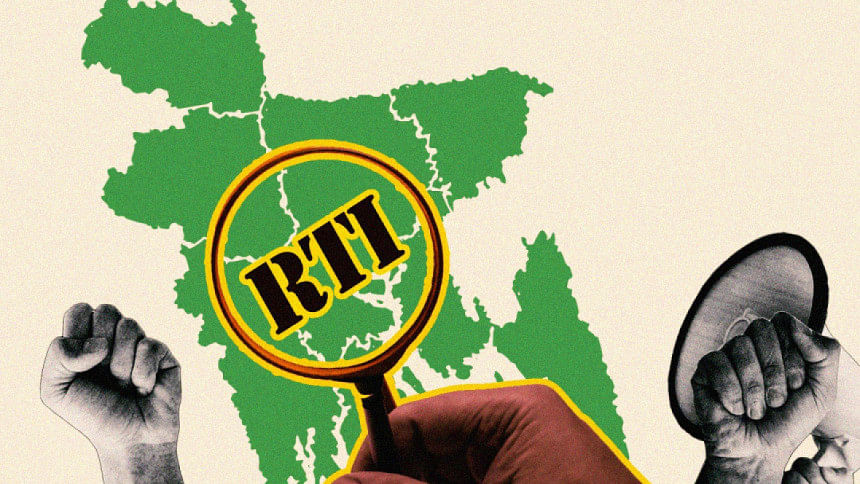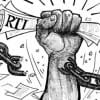A call to fill up Bangladesh's empty transparency chairs

Bangladesh's dedication to transparency is in a state of jeopardy. The core of the country's right to information (RTI) system, the crucial Information Commission, has been stuck in a limbo for months. Following the political changeover last year, the then chief information commissioner and one information commissioner resigned, and the third commissioner was later removed. These vacant positions are a direct blow to the spirit of government accountability.
The annual report for 2024—a legally required document summarising the previous year's activities—is unavailable on the Information Commission's website. The timeframe of the government's strategic plan to implement the RTI Act expired in 2021. Bangladesh passed its RTI Act in 2009 with high hopes, but its global ranking has been stalled at 27th since 2022. The law looks good on paper, but people still struggle to access information easily.
Only 7.7 percent of citizens were aware of the law, according to the Bangladesh Right to Information (RTI) Survey 2019; two-thirds of designated officers said they had not received any applications. Although the law requires vigorous campaigns and severe penalties, their actual application and effectiveness are woefully inadequate. There is a persistent disconnect between the RTI law and the people it intends to serve. Its implementation is still hampered by "red tape" and a deeply rooted "culture of secrecy." Information commissioners, frequently drawn from senior civil servants, have had difficulty letting go of their previous gatekeeping responsibilities and adopting a pro-citizen stance. There are also concerns about the implementation of the Information Commission's budget. The notable underspending in its 2023 annual report suggests possible inefficiencies or a lack of clear direction.
It is now imperative to infuse the genuine spirit of the July uprising into the RTI-specific reform recommendations that the interim government considers implementing, as envisaged in the Public Administration Reform Commission's report. This entails giving people's demands for accountability and transparency a top priority.
The interim government must take decisive action to close the gap between the law and lived reality. By bringing in new viewpoints and questioning established bureaucratic conventions, the appointment of information commissioners—particularly those with research experience on the RTI—can create a truly pro-citizen atmosphere. Rebuilding trust, upholding democratic values, and ensuring that the RTI empowers every Bangladeshi citizen are the goals here, not just filling vacant seats.
The Information Commission also needs to rethink how it communicates. This entails embracing dynamic, citizen-centric outreach in place of bureaucratic notifications. Public awareness campaigns that are easy to understand and are run across various media platforms, including social media and local radio, are crucial. To foster trust and enable citizens to exercise their right, the commission must aggressively streamline application processes, showcase success stories, and engage with communities.
Finally, it's time to make the right to information more than just a legal requirement. A clear commitment to openness at the highest level of government would be demonstrated by making RTI a fundamental constitutional provision. While the current law offers a legal framework, a constitutional guarantee would strengthen the foundation for judicial enforcement and bring Bangladesh into line with international best practices where access to information is increasingly acknowledged as an intrinsic part of democratic freedoms, much like freedom of speech. This critical step would make transparency an indisputable principle.
The interim government must show its steadfast dedication to accountability and transparency. Implementing the RTI Act and reviving the Information Commission are its litmus tests.
Dr S M Rezwan-Ul-Alam is associate professor of media, communication and journalism in the Department of Political Science and Sociology at North South University (NSU).
Views expressed in this article are the author's own.
Follow The Daily Star Opinion on Facebook for the latest opinions, commentaries and analyses by experts and professionals. To contribute your article or letter to The Daily Star Opinion, see our guidelines for submission.

 For all latest news, follow The Daily Star's Google News channel.
For all latest news, follow The Daily Star's Google News channel. 










Comments